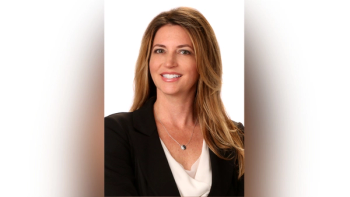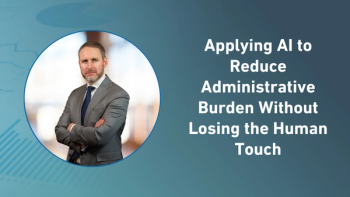
Bridging Clinical Research and Clinical Healthcare “Who Owns A Patient’s Data?”
Lisa Henderson talks about the topic of "who owns a patient's data" as discussed at the Bridging Clinical and Healthcare Conference 2018.
I attended SCORR Marketing’s debut event
In honor of Mark Zuckerberg speaking to Congress about Facebook’s data breach in the Cambridge Analytica scandal, I thought we could tackle the issue of data in bridging clinical research and clinical care.
We hear a lot about how big data, data analytics, and integrated solutions could positively impact clinical trial design, recruitment, site selection and, on the discovery side, find potential therapies more quickly. As these are presented in articles, we do know that it is a difficult process to find or access the correct data sources to analyze and then provide “actionable insights” to that data.
I’m no fortune teller, but I would hazard a guess that any company performing analytics using other people’s data-forming algorithms to inform a hypothesis and substantiate a business decision-should be highly concerned with what data they have and what they are using it for. I would also say that Zuckerberg’s defense that he formed his company in a dorm room 14 years ago, and Facebook’s data practices were “reactive” and “naïve” to increasingly sophisticated advances in technology, is probably not going to be your best defense in 2018. Accountability and transparency are the words to use these days.
Aside from that, the hearings and #Bridging2018 puts on the table “who owns the data?” Zuckerberg maintained that Facebook users “own” their data. But in the healthcare world, patient data is a dicey area. It’s protected by HIPPA; in clinical trials, the randomized clinical trial process is de-identified patient data, and increasing calls for data sharing and transparency of clinical trial data is an ongoing effort. Many pharma companies offer access to their SAS clinical trial data sets, after a researcher asks for it and agrees to certain terms of usage.
Increasingly, the barrier to progress is not technology, but the view that the data is “owned” by a company or entity. CROs and pharma sponsors that have collected years of data on investigators became a competitive data set, and burden on investigators. For every trial and trial opportunity, investigators fill out the same questionnaires and submit the same forms over and over. Members of TransCelerate Biopharma, who spent time and resources hammering out their agreements with each legal department on pre-competitive data sharing, now use a shared resource of investigators databank.
During a panel session at #Bridging2018, members declared that data integration on the clinical trial level would be helped if it were EDC-agnostic, a single solution, that was developed with an open source spirit and had a convenient workflow. Above all, someone noted that pre-competitive data should be shared to improve trial efficiencies, and that data sharing must happen in order to move the bridge along.
In March,
But do you own that data? Many patients in clinical trials have never received a follow-up call about the clinical trial they were in, whether or not the trial was successful. They knowingly participate in a trial that may not help them, but they still do it for the advancement of science or to help others with the disease. But shouldn’t they at least get a thumb drive of their own results?
I looked up Judy Faulkner after reading TJ’s tweet. I did not know, but she is the CEO of Epic Systems, one of the top three EHR vendors. Epic’s About Us features its own humbling origins story of being founded in a basement almost 40 years ago, and its 190 million patients who have a current electronic record in Epic. It says that the software is used in patients’ home and in their pockets, but do the patients know who is using their data and why?
Harking back to clinical trials participants, I’m sure the average person would agree to share their (de-identified) data for the betterment of healthcare, or to help people who needed additional treatment options find a clinical trial quickly, or their tumor data to further the advancement of research. This is healthcare, it isn’t messing with the American democracy. The CEO of Aetna Mark Bertolini said in the Fortune article, he believes that consumers would actively want to be data-sharing partners, if companies can demonstrate how they can benefit from that cooperation. “We have all these rules about protecting data,” says Bertolini. “But if you turn it around and say to the customer, ‘If we have this information about you, we can make this a lot more convenient for you,’ he or she will give you the data.”
The consensus at #Bridging2018 was that the healthcare system consists of stakeholders with misaligned incentives. That is an understatement. As I said in this Pharm Exec article
Lisa Henderson is Editor-in-Chief of Applied Clinical Trials. She can be reached at
Newsletter
Stay current in clinical research with Applied Clinical Trials, providing expert insights, regulatory updates, and practical strategies for successful clinical trial design and execution.




